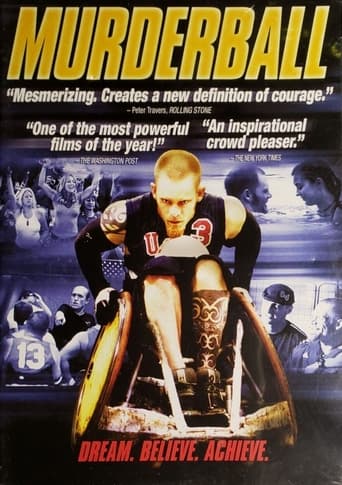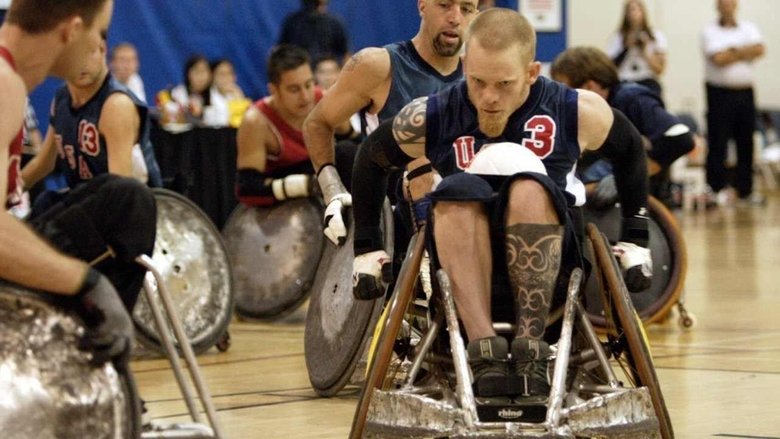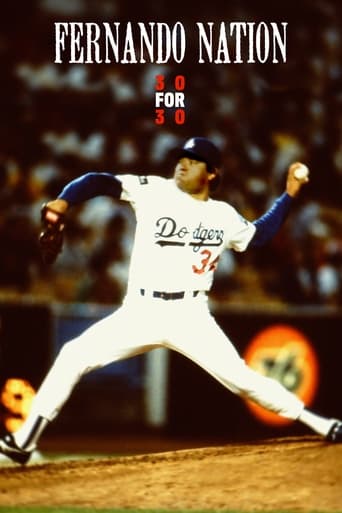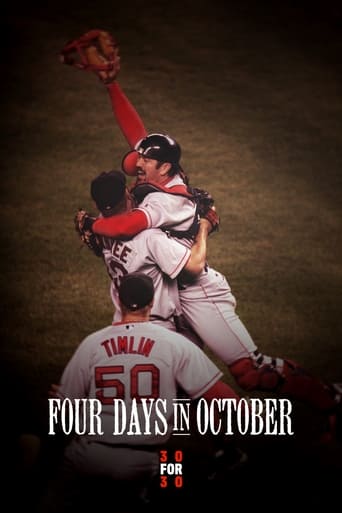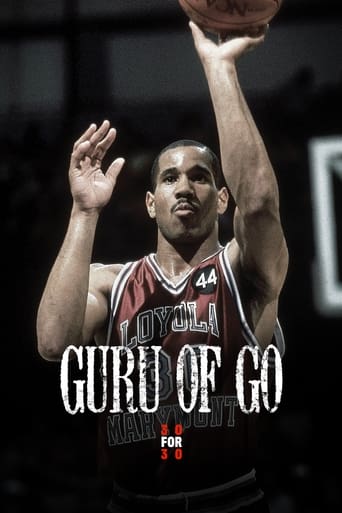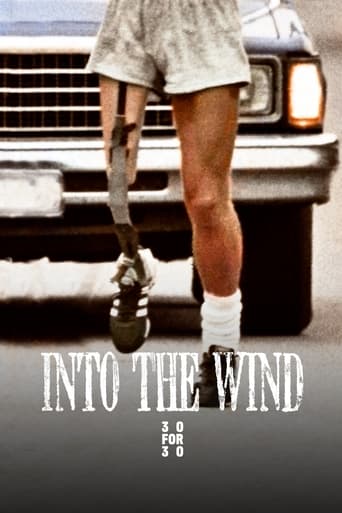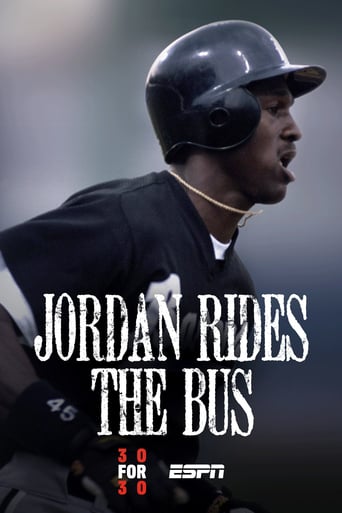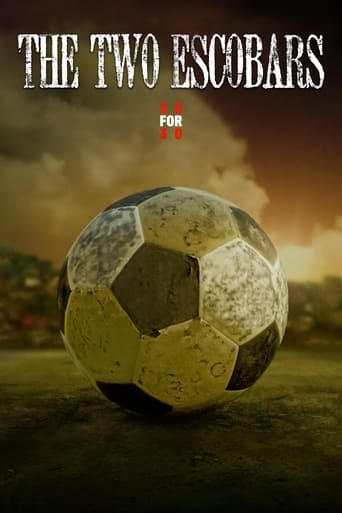Murderball (2005)
Quadriplegics, who play full-contact rugby in wheelchairs, overcome unimaginable obstacles to compete in the Paralympic Games in Athens, Greece.
Watch Trailer
Cast
Similar titles
Reviews
Bad Acting and worse Bad Screenplay
The movie's neither hopeful in contrived ways, nor hopeless in different contrived ways. Somehow it manages to be wonderful
The tone of this movie is interesting -- the stakes are both dramatic and high, but it's balanced with a lot of fun, tongue and cheek dialogue.
The thing I enjoyed most about the film is the fact that it doesn't shy away from being a super-sized-cliche;
Quadriplegic athletes compete in a fierce form of rugby known as Murderball. Two rival teams from America and Canada respectively go head to head in Athens, Greece for the gold medal in a major championship match.Directors Henry Alex Rubin and Dana Adam Shapiro vividly capture the amazing strength, humor, and humanity of a remarkable bunch of men who include the fearsome and aggressive Mark Zupan, the recently disabled, but determined Keith Cavill, the soulful Bob Lujano, easygoing blonde hunk Andy Cohn, likable Scott Higsett, and bitter Canadian team coach Joe Soares, who becomes a better and more caring father and person after suffering a heart attack. Moreover, Rubin and Shapiro show an obdurate and admirable refusal to sentimentalize their subjects: These tough, scrappy, and resourceful fellows elicit and deserve respect instead of pity for the courage and resilience they show in the face of adversity and offer proof positive that a disability can be effectively surmounted through sheer force of will alone. Better still, this film covers everything from the grueling training sessions to the brutal and harrowing games to the reality of these men's sex lives with refreshing candor and straightforwardness. An extraordinary testament to the triumph of the human spirit.
The power of the mind is an amazing thing; for those possessing it, no obstacle is insurmountable; but for those lacking it, any roadblock is deterring. Fortunately, the subjects of the documentary "Murderball", are blessed with the former. It's just as well, as they are all quadraplegics.The participants featured (Mark Zupian, Joe Bishop, Andy Cohn, Scott Hogsett, David Willsie) all play "Murderball", otherwise known as Wheelchair or Quad Rugby. While there are no rucks or mauls to be seen, Murderball instead features the finesse and skill of basketball, and the brutality of Ice Hockey or American Football.With four players per team on court, they combine to transport the ball over the opposition's goal line, with each goal worth a point. This documentary focuses on the USA and Canadian teams; starting from the 2002 World Championships in Sweden, where Canada defeated the USA 25-24 in overtime (ending their run of eleven consecutive championships), and to the lead up of the 2004 Paralympics in Greece. These two dominant forces eventually meet again in the Paralympic semi-final, with the winner advancing to the gold medal playoff, while the best the loser can hope for is an inglorious bronze. The USA and Canadian teams have held a long and bitter rivalry, especially considering Bishop (a victim of childhood polio) after playing in the USA's 1996 gold medal triumph in Atlanta, was cut after a loss of form, then defected to take up the Canadian coaching job. Accused of betraying his country, Bishop shows no remorse for his decision, but, ifanything, renewed hatred for the United States. Having led Canada to a dramatic World Championship victory, then losing by a goal in the Paralympics qualifying tournament, Bishop is desperate to defeat the USA again. In other hands, "Murderball" could have been an overly sentimental film. While themes of self-belief and courage upon adversity resonate, it's done in such a matter-of-fact way, that it doesn't feel preachy. The closest the film gets to sentimentality is in recounting Zupian's accident, injured in the back of a pick-up truck by his friend Christopher Igoe, who was drunk at the time. After long periods of avoiding each other, Zupian and Igoe eventually make up. While it could have been easy for Zupian and company to succumb to a life of self-pity and financial handouts, they prove they're just as tough, if not tougher, than most able-bodied athletes. They talk frankly about their accidents and attempting to resume a normal sex life. This comes across in the Murderball matches themselves. The on-court brutality is magnified by the fact, having been to hell and back, the players have no fear about getting injured.The great thing about 'Murderball' is it avoids the usual emotional manipulation of most films about serious disabilities in favour of a more grounded view. That alone is worth watching it for.
Tonight I finally made time to watch the incredible documentary Murderball - a truly exceptional film. Through the introduction of action, conflict, and tension, the directors and editors compose a telling film that transcends athletes and disability. Murderball also blends an almost perfect three act structure with a natural arc for each character as well as the overall story. Not only is this film a hard-core doc packed with unfolding drama and arrogant and funny characters/people, it is also a surprise to anyone with stereotypes about disabled athletes. Despite the machoism and crude behavior of many of the people in the film, the documentary is as honest as I've seen in a few years. You don't have to like the characters to love the story. The film-making crew deserves every credit and reward that has resulted from this film. Kudos!
If, like the rest of us, you spend most of your time pissing and moaning over the seeming unfairness and petty inconveniences of everyday life, I suggest you check out "Murderball" for an immediate attitude readjustment. This fascinating documentary will put all of that stuff into perspective for you, while entertaining the hell out of you at the same time.Played on a regulation-sized basketball court (minus the baskets), Murderball is actually a slang name for Wheelchair Rugby, an international sport in which quadriplegics use their specially armored wheelchairs almost like souped-up bumper cars to score goals for their team. The film concentrates, primarily, on the intense and sometimes downright vicious rivalry between the team from the United States and the team from Canada. The movie makers introduce us to about a half dozen players, each of whom, even in the few moments afforded him on screen, becomes a distinct personality with a history to relate and a story to tell. The two main focal points are the charismatic and muscular Mark Zupan, and Joe Soares, one of the legendary pioneers of the sport who left to coach for Canada after he was cut from the American team. Many of the most incisive scenes deal with the ribbing, some of it good-natured, some of it not so good-natured, that Soares has had to endure over his decision to defect to the opposing side.Although the rugby scenes themselves are gripping and thrilling, the real drama occurs off the court in the men's personal lives, as we see the struggle and heartbreak the men go through, the strength and inspiration they exhibit for the rest of us, and, most especially, the camaraderie and team spirit that comes with working together to achieve a common goal. As the film-making crew follows the men around through the course of their daily lives, we get to know them as complex individuals, finding out how they ended up in a wheelchair and seeing how each was able to rise above the experience to get to where he is today. The film neither sugarcoats the difficulties of their lives nor asks for our pity. It simply presents the men to us, in all their virtues and flaws, and asks that we listen in on their stories. Some of the most poignant moments involve Soares having to come to terms with having a son who has little or no interest in sports, preferring the violin instead.Kudos to directors Henry Alex Rubin and Dana Adam Shapiro for their fine work on this film, especially Rubin, who also provided the stunning camera-work for the scenes on the court. But most of our thanks should go to the men of the film and their loved ones who were willing to open up their lives to us in so vivid and honest a way. This is an inspiring and heartwarming film - the final scene is of some of the men introducing the sport to a number of injured Iraq War veterans - that will stick with you long after the closing credits.
